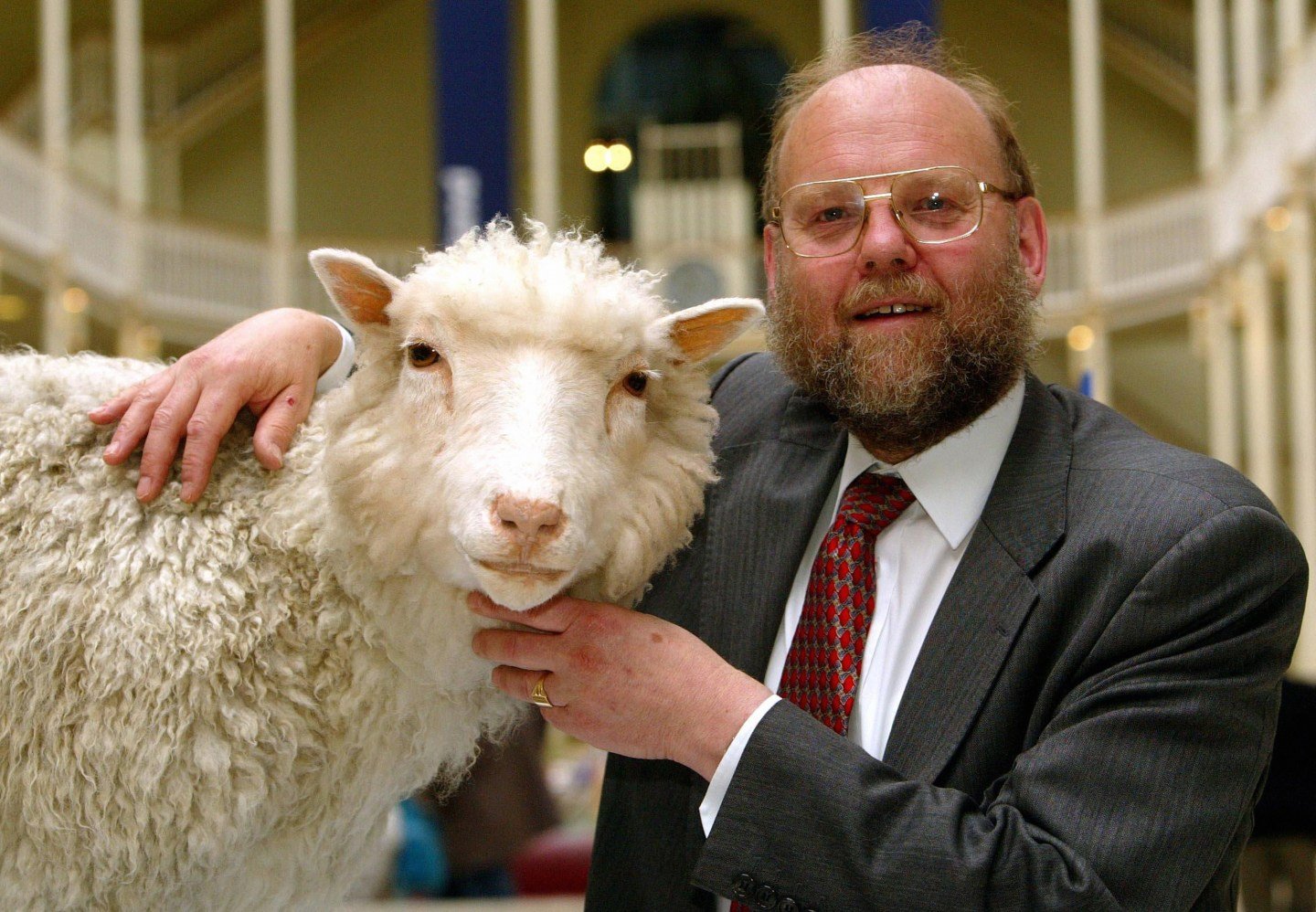The news was announced by the University of Edinburgh (Scotland, UK), where Mr. Wilmut used to work, on September 11, according to AFP.
Wilmut led the team at the University of Edinburgh's Roslin Institute that created Dolly the sheep in 1996. Dolly was the world's first mammal to be cloned from an adult cell, a breakthrough that attracted global attention at the time.
This momentous achievement led to new advances in animal and medical research, while also raising questions about the possibility of human cloning and sparking a global debate about the ethics of cloning.

Scientist Ian Wilmut and Dolly the sheep when he was alive
FORTUNE SCREENSHOT
Wilmut and his colleagues’ work laid the foundation for stem cell research, a technology that has helped cure many diseases of aging by allowing the body to regenerate damaged tissue. His legacy is the creation of a field called regenerative medicine, which has enormous potential to help people live longer, healthier lives.
Peter Mathieson, Vice-Chancellor of the University of Edinburgh, praised Mr Wilmut as a "giant of the scientific world", saying his work on cloning Dolly the sheep "changed scientific thinking at the time".
"This groundbreaking work has fueled many of the advances in regenerative medicine we see today," AFP quoted Mr. Mathieson.
Bruce Whitelaw, the current head of the Roslin Institute, said Mr Wilmut's death was "sad news". "Science has lost a household name," he said.
Mr Wilmut retired from the University of Edinburgh in 2012. In 2018, he announced his support for new research into Parkinson's disease, revealing that he had been diagnosed with the disease, a progressive, incurable brain disorder that can cause uncontrollable movements such as tremors.
"There's a clear sense that at least now we know and we can start doing things to address that... Equally clear is the frustration that this disease will probably shorten my life a little bit, and more particularly that it will change the quality of life," he told the BBC at the time.
According to the World Health Organization (WHO), Parkinson's is the second most common neurodegenerative disease after Alzheimer's and affects more than 8.5 million people worldwide.
Source link



![[Photo] Close-up of Vietnam's sniffer dog team searching for earthquake victims in Myanmar](https://vstatic.vietnam.vn/vietnam/resource/IMAGE/2025/4/1/d4949a0510ba40af93a15359b5450df2)
![[Photo] General Secretary To Lam receives King Philippe of Belgium](https://vstatic.vietnam.vn/vietnam/resource/IMAGE/2025/4/1/e5963137a0c9428dabb93bdb34b86d7c)

![[Photo] Prime Minister Pham Minh Chinh meets with King Philippe of Belgium](https://vstatic.vietnam.vn/vietnam/resource/IMAGE/2025/4/1/be2f9ad3b17843b9b8f8dee6f2d227e7)
![[Photo] President Luong Cuong and King Philippe of Belgium visit Thang Long Imperial Citadel](https://vstatic.vietnam.vn/vietnam/resource/IMAGE/2025/4/1/cb080a6652f84a1291edc3d2ee50f631)



























![[Photo] Myanmar's capital in disarray after the great earthquake](https://vstatic.vietnam.vn/vietnam/resource/IMAGE/2025/4/1/7719e43b61ba40f3ac17f5c3c1f03720)






























































Comment (0)